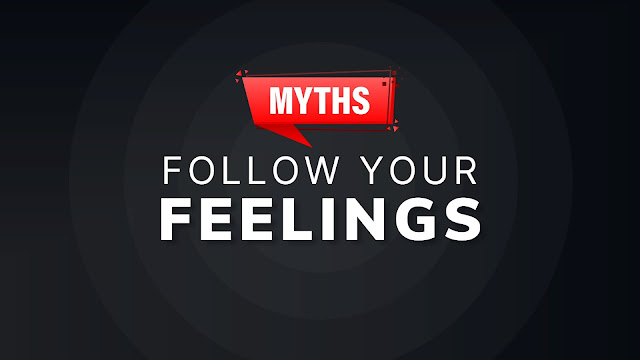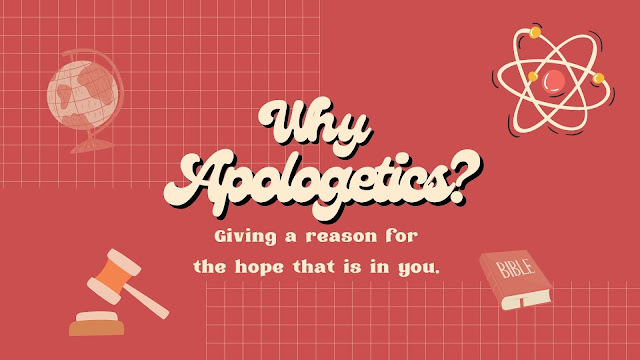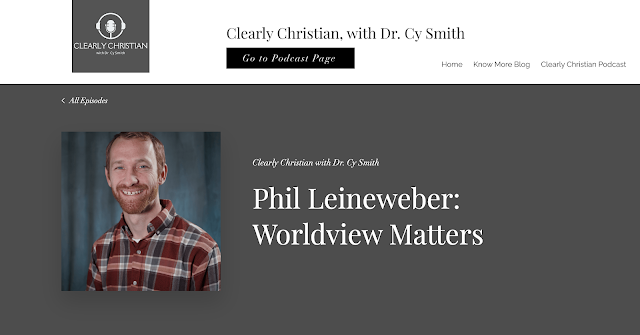Lie: Follow Your Feelings
I have red-green colorblindness. I was born with this condition and it influences much of what I see in the world. You can in the picture to the right a little bit of what my world looks like. All three of these pictures of skittles look the same to me and about 1 in 12 males.
I don’t see the world correctly. I don’t see the world as it is. Lies in our culture and in our hearts distort our perspective of this world in much the same way. Lies, like optical illusions, twist our understanding of reality. This is especially true of the lie we are focusing on today: Follow your Feelings.
Lies in our culture and in our hearts distort our perspective of this world
This lie is replete in our world. Think of some of these popular quotes:
- “Follow your heart”
- “You do you”
- “You have to do whatever it takes to make you happy”
- “Obey your thirst”
- “Let your heart be your guide”
- “Be true to yourself”
- "Trust your feelings"
- “You can have it your way”
I am sure you have heard most of these. We all have! We know the liturgy and we have been thoroughly indoctrinated! The most important question seems to be: "what does your heart tell you?"
We are taught that feelings and internal impressions are the compass for our life’s biggest decisions.
This lie has also found its way into the church. “Doesn’t God want me to be happy?” “I don’t think God wants me to do that.” All of these ideas communicate the idea that my internal comfort is the primary goal. Following my internal desires is my greatest purpose.
Paul, in Galatians refutes this lie that our feelings should drive everything.
But I say, walk by the Spirit, and you will not gratify the desires of the flesh. For the desires of the flesh are against the Spirit, and the desires of the Spirit are against the flesh, for these are opposed to each other, to keep you from doing the things you want to do. Galatians 5:16-17
The context of this passage in Galatians is the good news that only Jesus can save, and it is only through faith alone. The law cannot make us righteous. We are free from the bondage of the law in Christ (5:1, 13). There is nothing we can do to add to our salvation and we certainly did not earn it. Paul anticipates the conclusion some might come to based upon this free gift of God's grace: “Sweet! I am saved? Then I can do whatever I want!” Paul firmly refutes this idea and presents the reality that our hearts are a battleground of desires. Within us there is a battle between sinful desires and spiritual desires (desires of the Spirit).
Paul's teaching here means that our desires are not all positive or good. This inherently addresses a lie we see that is very common in our culture. The myth that our desires are "who I am."
Gender Dysphoria
In our culture we are greatly confused. Just think of the gender conversation that has arisen over the alst several years. Secular Psychology's textbook, The Diagnostic and Statistical Manual of Mental Disorders, Fifth Edition (DSM-5), offers definitions of mental disorders and conditions including Gender Dysphoria. Look at five of the six symptoms of this condition.
- A strong desire to be rid of one’s primary and/or secondary sex characteristics because of a marked incongruence with one’s experienced/expressed gender (or in young adolescents, a desire to prevent the development of the anticipated secondary sex characteristics)
- A strong desire for the primary and/or secondary sex characteristics of the other gender
- A strong desire to be of the other gender (or some alternative gender different from one’s assigned gender)
- A strong desire to be treated as the other gender (or some alternative gender different from one’s assigned gender)
- A strong conviction (belief) that one has the typical feelings and reactions of the other gender (or some alternative gender different from one’s assigned gender) (See this page for more)
Furthermore, the treatment that the American Psychiatric Association recommends, and most other secular entities (if someone expresses this desire for 6+ months) would be to affirm whatever desire the individual has and then even recommend chemical and surgical intervention. All of this is based upon the false assumption that are desires are who we are.
If I have a persistent, unrelenting desire it must be true about who I am.
How did we get here? How did we get to this place where desires, and internal feelings can define reality? Carl Trueman’s book, Strange New World: How Thinkers and Activists Redefined Identity and Sparked the Sexual Revolution traces the influences in culture, philosophy, and psychology that brought us to this moment. He describes the reality that there has been a triumph of the modern self. He writes, “the modern self assumes the authority of inner feelings." Furthermore, authenticity as the highest aim of your life. He continues, “authenticity is achieved by acting outwardly in accordance with one’s inward feelings. (23)”
The modern self assumes the authority of inner feelings -Carl Trueman
So we live in a culture that increasingly believes that inner feelings are the basis for expressing your truth, your true self.
Feelings Driving the American Church
It is easy to pick on a more extreme example but these same ideas have influenced our churches and American Christianity. How many of these bullet points would most of your Christian friends identify with?
- The primary way God leads me is through my feelings
- The Spirit primarily speaks to me through impressions, urges, and desires
- God’s presence is real when I feel it
- The sermon didn’t "speak" to me
- I wasn’t feeling the worship
Sadly, we live in a consumer driven culture where churches are evaluated by google reviews just like the local chipotle or hotel. What is most important is the extent to which a church meets my needs! We are reluctant to do anything for God that makes us FEEL uncomfortable.
Pastors are complicit in this too, only speaking the truth of God that they believe is palatable or culturally sensitive. You wouldn’t want to offend anyone’s feelings…But this flies in the face of God’s will for pastors who are called to preach the Word of God to the people of God by the power of God for the glory of God!
A pastor friend of mine shared this quote with me, (sadly one that had been shared by another pastor)
“Ignoring our emotions is turning our back on reality. Listening to our emotions ushers us into reality. And reality is where we meet God.”
This is such a lie. The sad reality is that we live in a culture of Hedonism - the ethical theory that pleasure (in the sense of the satisfaction of desires) is the highest good and proper aim of human life.
We are told our greatest fulfillment is to follow our feelings but this is simply not true. Paul presents in this passage a different reality, one in which we have competing cravings, divisive desires, and errant emotions inside us. Our hearts are a battleground of desires.
We have competing cravings, divisive desires, and errant emotions inside us. Our hearts are a battleground of desires.
We are swimming in this reality that feelings are the drivers in our culture. My personal feelings are sitting in the driver's-seat of my life. So how then do we handle our feelings? What are feelings?
Truth #1: Feelings are Real but Not Always True
Lest most of the men celebrate at this point saying that feelings are an abomination, we must acknowledge that emotions and feelings are not innately evil. Sorry guys!
We all have emotions. Feelings and emotions are important. Our emotions were created by God. They are part of what it means to be made in the image of God. God reveals Himself as a God who experiences emotion, and though it may be different than ours, it is one way we are like God.
It is when we elevate feelings above everything else that we can get into trouble.
God’s Word does not avoid feelings. Think of the following:
- Desires & Wants (Here in Galatians 5)
- Anger (Eph. 4:26; James 1:20)
- Worry and anxiety (Philippians 4, Matthew 6)
- Despair (2 Corinthians 1:8)
- Grief, even in the life of Jesus (John 11)
- Fear (Psalm 23:4; Isaiah 41:10)
- Joy and Rejoicing (Romans 12:15)
- Mourning (Romans 12:15)
- Sorrow & Anguish (Romans 9:2)
This is just a quick list and doesn't represent the thousands of allusions to emotions in the Scriptures. God's Word does not ignore our feelings, and neither should we. Feelings are real. Emotions are a reality of what it is to be human!
Feelings can be helpful
Feelings can capture our most powerful memories. Think of a time where you laughed to the point of tears, the joy of your wedding day, or the birth of a child! Emotions help capture these beautiful moments.
Suppressing & ignoring feelings is not healthy! It is good to acknowledge and understand our feelings. If you have experienced trauma or abuse, feelings can reveal where there are deep hurts and wounds and areas of your life where you need to experience healing.
Feelings can reveal our preferences and God-given design. God made you uniquely you, and some of those tastes and feelings you experience are part of who God made you to be.
Feelings can be used by the Spirit of God. They can be good and of God! Psalm 37:4 says to "delight yourself in the Lord, and he will give you the desires of your heart." God wants our affections! We are not called to be stoics, avoiding all emotion, but rather seeking Godly affections for the Lord (See Psalm 16:11)
Tim Keller in his book, Counterfeit Gods, says that if you want to find the idols in your life follow your strongest feelings. So emotions can really be helpful in our lives in a lot of ways. They are arrows that point to our inner life.
Our feelings and desires should be measured by the actions they produce
Let's keep following Paul's argument,
Now the works of the flesh are evident: sexual immorality, impurity, sensuality, idolatry, sorcery, enmity, strife, jealousy, fits of anger, rivalries, dissensions, divisions, envy, drunkenness, orgies, and things like these. I warn you, as I warned you before, that those who do such things will not inherit the kingdom of God. But the fruit of the Spirit is love, joy, peace, patience, kindness, goodness, faithfulness, gentleness, self-control; against such things there is no law. Galatians 5:19-23
Our emotions cannot always be trusted. Our feelings and desires should be measured by the actions they produce. If I have a sexual desire, that is not necessarily wrong, but what behavior does the desire produce? Anger can be a powerful force to destroy problems in your life. But if anger controls you it will destroy everything in your life.
I often feel fearful to preach! If I followed that feeling I would never step up to the pulpit. We must not always follow our feelings! Think of the Biblical case for the sinfulness of our heart and feelings:
- The heart is deceitful above all things, and desperately sick; who can understand it? (Jeremiah 17:9)
- But each person is tempted when he is lured and enticed by his own desire. Then desire when it has conceived gives birth to sin, and sin when it is fully grown brings forth death. (James 1:14-15)
Our heart and feelings cannot always be trusted. Religious experience and feelings occur in Islam, Buddhism, Judaism, Hinduism and I am sure Nazi socialists hearing the speech of Adolf Hitler in Nuremberg felt like they were part of some great movement and historical event that would usher in a utopian state for humanity.
Our feelings may be real but they do not always correspond to reality outside of your experience, they are not always true and they certainly are not always good.
Truth #2: We are to Follow the Spirit of Christ, not our Feelings
And those who belong to Christ Jesus have crucified the flesh with its passions and desires. If we live by the Spirit, let us also keep in step with the Spirit. Gal 5:16-25
God speaks directly to our emotions, even commanding us to resist certain emotions and submit instead to the Spirit of Christ in our lives. Two strategies I see in this text:
- Know your Identity: To be in Christ, is to have the desires of our flesh disarmed. You are no longer a slave to go wherever your passions, feelings, and emotions want to take you.
- Hold onto your Advocate: We are to be led by the Spirit, not our feelings. This looks like daily dependence on the Holy Spirit.
Paul commands us in this passage to “walk by the Spirit” (v. 16), be "led by the Spirit” (v. 18), and “keep step with the Spirit (v. 25). We are to follow the Spirit not our feelings. But how do I follow the Spirit?
Jesus said this, "But when he, the Spirit of truth, comes, he will guide you into all the truth" (John 16:13). The Spirit works best using a sword. Let the Spirit of God lead you to the Word of God so that you can rightly divide the thoughts and intentions of your heart (See Ephesians 6; Hebrews 4:12). Combat the lies of our feelings with the truth of God's Word.
Not My Will
The lie is that we should follow our feelings. God would command us to submit to Him inspite of our feelings. Remember Jesus in the garden of Gethsemane on the night before His crucifixion. Feeling the weight of the wrath that was coming and the road of suffering he would endure he asked for prayer. he experienced intense anxiety and sweated profusely. In the midst of these overcoming feelings He prayed “Not my will but yours be done.”
I am so glad that Jesus, in His humanity, followed the will of the Father, in spite of the pressure He was feeling.
When Jesus commanded us to practice the Lord's Supper, He said to "Do this in remembrance of me" (Luke 22:19-20). The whole idea of remembering is calling facts to mind. The Christian life is based upon facts not feelings. Our faith is based upon objective events and happenings in history. Jesus was a real man, in a real time, and a real place. He bled real blood, died a real death, and really and bodily rose form the dead for us!
So when you feel unloved, look to the cross where Jesus died for you, because of His great love for you. When you feel like that sinful craving is no big deal, remember it was worth His blood being shed, and you are bought with a price. When your feelings seek to lead you to sin, pray what Jesus prayed, "not my will, by thine be done."
Don't follow your feelings; follow Jesus.
With grace,
Phil Leineweber
_________________
Here is the video of the sermon preached in May 2023 on the lie: Follow Your Feelings.






.png)


Comments
Post a Comment